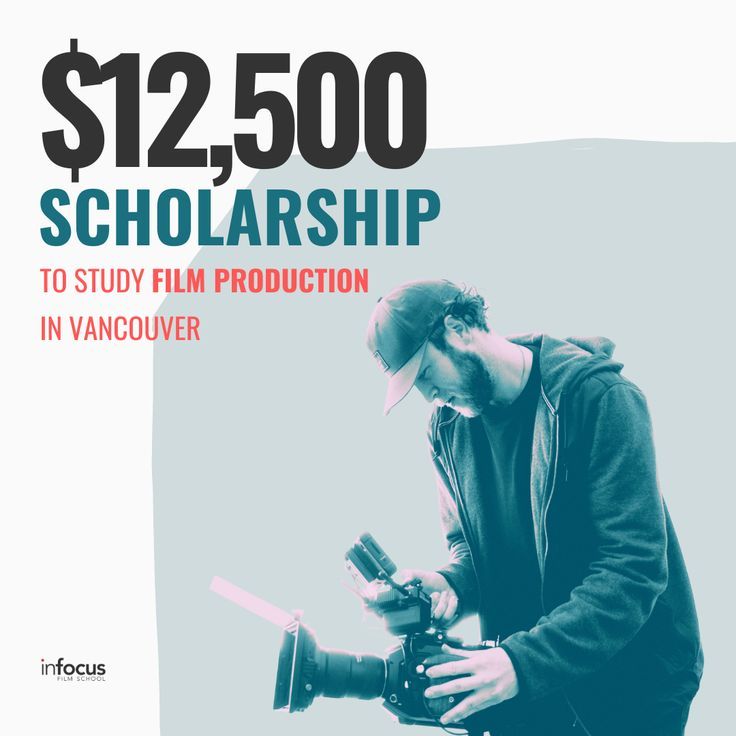
Navigating the Maze: My Journey to Film School on a Scholarship
My dream, ever since I was a little kid with a battered camcorder filming neighborhood cats, was to tell stories on the big screen. The flickering images, the power of sound, the way a well-crafted narrative could transport you – it all felt like magic. But as I grew older, the practicalities of turning that dream into a reality started to loom large. Specifically, the colossal cost of film school. It felt like standing at the foot of Mount Everest, only realizing you didn’t just need the strength to climb, but also a literal mountain of cash to even get to base camp.
I remember those late nights, scrolling through university websites, my heart sinking with every tuition fee listed. It wasn’t just the tuition; it was living expenses, equipment, books, travel. It felt insurmountable. My family, while incredibly supportive of my artistic aspirations, wasn’t exactly flush with cash. We were a hardworking, middle-class bunch, and a five-figure (or even six-figure) investment in my creative future was simply out of reach. I began to think my dream might have to remain just that – a dream, confined to my head and a pile of unproduced scripts.
Then, one evening, after another dispiriting search, I stumbled upon a forum post. Someone was talking about "film school scholarships." It was a phrase I’d heard before, of course, but always dismissed as something for the truly exceptional, the prodigies, the ones whose short films were already winning Cannes. I wasn’t that. I was just a kid with a passion and a decent grasp of storytelling. But curiosity gnawed at me. What if? What if there was a way?
That "what if" became my obsession. I plunged into the world of film school financial aid, and what I found was a sprawling, sometimes confusing, but ultimately hopeful landscape. It wasn’t just for the chosen few; it was for the persistent, the prepared, and those who knew how to tell their own story, not just on film, but on paper too. My journey to film school, much like any good script, had its plot twists, its moments of doubt, and ultimately, its triumphant resolution, all thanks to the lifeline of scholarships.
Why bother with scholarships, you might ask, especially when student loans seem so readily available? For me, it wasn’t just about avoiding debt, although that was a massive motivator. Receiving a scholarship felt like a validation. It was someone, somewhere, believing in my potential enough to invest in it. It meant I could focus on learning, on creating, on experimenting, without the constant gnawing anxiety of how I was going to pay back thousands of dollars with interest hanging over my head. It also opened doors, connecting me with donors and organizations that became part of my nascent professional network. It wasn’t just money; it was freedom and opportunity.
So, where do you even begin to look for these golden tickets? My first piece of advice, and perhaps the most important, is to think broadly. Don’t limit yourself.
Firstly, school-specific scholarships are often your best bet. When you apply to a film program, many institutions automatically consider you for their internal scholarships based on your application materials – your grades, your essays, your portfolio, and sometimes, your financial need. These can range from small grants covering a few books to full-tuition awards. I remember meticulously researching each school’s financial aid page, looking for specific programs like "Dean’s Scholarship for Cinematic Arts" or "Diversity in Film Grant." Some schools even had scholarships named after famous alumni or industry figures. It’s crucial to understand their specific criteria and deadlines, as these can vary wildly. Some required separate applications, while others were integrated into the main admissions process.
Secondly, there’s a vast world of external scholarships. These are offered by organizations outside the universities themselves. This category is a treasure trove, but it requires diligent digging. I spent countless hours on scholarship search engines, filtering by "film," "media," "arts," and even broader categories like "community service" or "leadership." These external bodies could be anything from large national foundations dedicated to supporting the arts (like the Princess Grace Foundation, which has a strong film program) to smaller, local organizations interested in fostering talent from their specific region. Industry guilds, like the Directors Guild of America or the Producers Guild, sometimes offer scholarships or mentorship programs that come with financial aid. Even niche groups, like those supporting women in film, minority filmmakers, or specific genres, can have dedicated funding. I even found a scholarship for students interested in documentary filmmaking, which aligned perfectly with my passion!
Thirdly, though less common for direct film education, don’t completely overlook government grants or broader educational funding. While federal grants often focus on general higher education, sometimes there are state-level arts grants or specific programs for vocational training that might apply. These usually have strict eligibility requirements, often tied to residency or income, but they’re worth a quick check.
Once I knew where to look, the real work began: the application process. And let me tell you, it’s a marathon, not a sprint.
Research, research, research: This was my mantra. Each scholarship had its own set of rules, its own essay prompts, its own requirements for portfolios or letters of recommendation. I created a giant spreadsheet to keep track of everything: scholarship name, deadline, requirements, submission portal, and my progress. Missing a deadline, even by an hour, usually meant automatic disqualification. I learned that the hard way with one early application that slipped through the cracks. Never again.
Crafting Your Story (Essays and Personal Statements): This is where you truly shine, and where you absolutely cannot sound like a generic template. For film school, this is paramount. They want to know who you are as a storyteller, what drives you, what unique perspective you bring. I remember staring at a blank page for hours, trying to articulate why I deserved this opportunity. I didn’t just write about my love for movies; I wrote about the specific moments that ignited that love, the stories I felt compelled to tell, the unique blend of my background and experiences that shaped my artistic voice. I talked about growing up in a diverse neighborhood and how it gave me a particular lens through which to view human relationships. I shared my failures, my rejections, and what I learned from them. It wasn’t about being perfect; it was about being authentic and passionate. Show, don’t just tell. Instead of saying "I am passionate about film," I wrote about a specific moment watching a film that changed my perspective forever, and how I yearned to create that same experience for others. I made sure my essays were vivid, personal, and revealed something deeper about my character and artistic vision.
The Portfolio/Showreel: For film school, this is often the make-or-break element. It’s your visual resume. Even if you’re a writer or editor, they want to see that you understand the language of film. I didn’t have a massive budget, but I used what I had: my trusty DSLR, free editing software, and a few patient friends. I curated a collection of my best short films, experimental videos, and even some well-shot scene exercises. It wasn’t about perfection, but about showing potential. Did my shots have intention? Could I tell a story visually? Did I understand pacing? I made sure my showreel was concise, impactful, and highlighted my strengths. If you’re a writer, your portfolio might be screenplays or short stories. If you’re an editor, it’s your edited pieces. Always tailor it to the specific program you’re applying to. If they emphasize directing, make sure your directing pieces are prominent.
Letters of Recommendation: These are crucial. I approached teachers, mentors, and even a local independent filmmaker I had interned for. I didn’t just ask them for a letter; I asked if they felt they could write a strong letter. I provided them with my resume, my personal statement, and details about the scholarships I was applying for. This helped them tailor their recommendations to highlight qualities relevant to a film student – creativity, perseverance, collaborative spirit, critical thinking. A generic letter is less impactful than one that speaks specifically to your potential in the field.
Transcripts and Grades: While film school isn’t always about being a straight-A student, your academic record does matter. It shows you can commit, learn, and meet deadlines. I made sure my transcripts were sent promptly and that any explanations for dips in grades (like a particularly challenging family situation one semester) were addressed in my essays or an addendum.
Deadlines: I cannot stress this enough. Every single scholarship application has a non-negotiable deadline. I used my spreadsheet, set multiple reminders, and aimed to submit everything at least a week in advance to avoid any last-minute technical glitches. There’s nothing worse than putting in all that work only to miss the submission window.
Throughout this demanding process, I picked up a few invaluable tips and tricks:
- Start early: Seriously, don’t wait until the last minute. Scholarship applications are often due months before school applications.
- Apply to many: It’s a numbers game. The more scholarships you apply for, the higher your chances of getting one. Don’t put all your eggs in one basket.
- Tailor each application: Don’t just copy and paste. Every scholarship committee wants to feel like you specifically want their scholarship and understand their mission.
- Proofread obsessively: A typo in an essay or a mistake in your portfolio description can convey carelessness. Get friends, family, or teachers to read everything.
- Be persistent: You will get rejections. I certainly did. Don’t let them deter you. Learn from them and keep applying.
- Don’t be afraid to ask for help: Reach out to your school’s financial aid office, career counselors, or even current film students. Many people are willing to offer advice.
- Network: Even before you get into film school, start connecting with people in the industry or other aspiring filmmakers. You never know where an opportunity might come from. A casual conversation could lead to a recommendation or knowledge of an obscure scholarship.
The waiting game after submitting everything was excruciating. Each email notification, each letter in the mail, sent my heart racing. There were a lot of "We regret to inform you…" letters. But then, one crisp autumn morning, an email landed in my inbox. It was from the film school I had dreamed of attending, and it wasn’t a rejection. It was an acceptance letter, and nestled within it, a notification of a significant scholarship award – enough to cover a substantial portion of my tuition for the first year, with the possibility of renewal.
I remember the sheer euphoria. It wasn’t just the money; it was the affirmation. It was the realization that all those late nights, all that meticulous planning, all the moments of self-doubt, had led to this. My dream, which had once felt like an impossible mountain, now felt within reach.
Receiving that scholarship changed my trajectory completely. It allowed me to immerse myself fully in my studies, to experiment with different filmmaking techniques, to collaborate with incredibly talented peers, and to learn from industry veterans without the crushing burden of debt. I could afford to buy the necessary textbooks, invest in a decent hard drive for my projects, and even attend a film festival. It wasn’t just a financial award; it was a passport to truly engage with my passion.
My journey taught me that while talent and passion are essential, persistence, meticulous planning, and the ability to articulate your story are equally important when it comes to funding your film education. Film school scholarships aren’t some mythical beasts; they are tangible opportunities for aspiring filmmakers who are willing to put in the work.
So, to any budding storyteller out there, looking at those daunting tuition fees and feeling your dream slip away – don’t give up. The path might be winding, filled with paperwork and rejections, but it’s absolutely worth navigating. Your voice, your unique perspective, your stories – they are valuable. And there are organizations and institutions out there willing to invest in them. Start digging, start writing, start filming. Your scholarship, and your future in film, might just be waiting for you to discover it.


